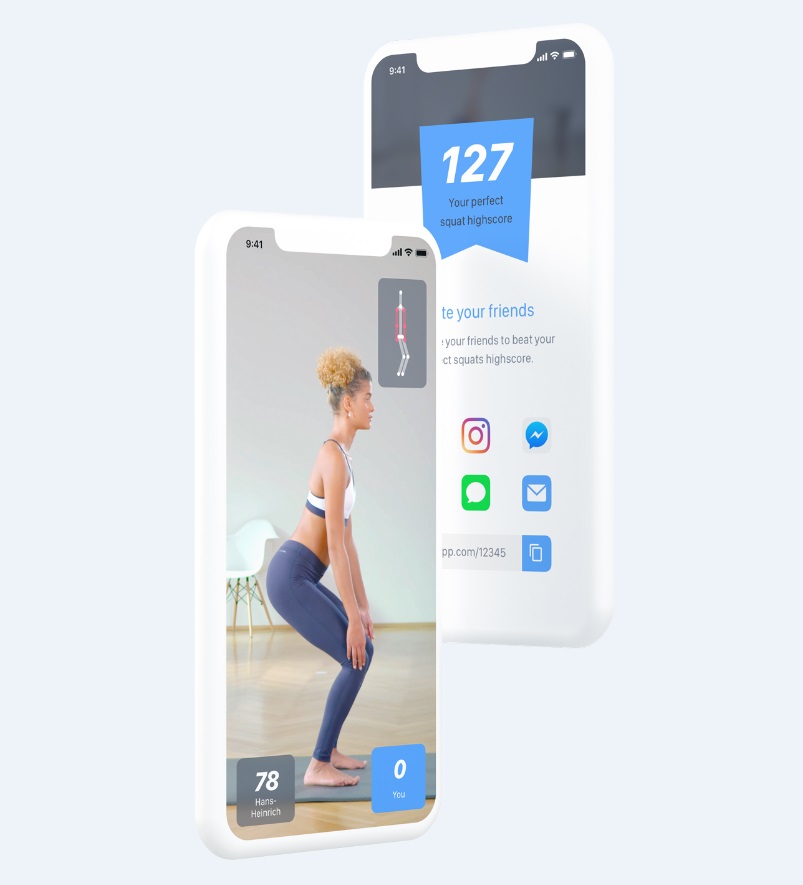Sitting comfortably, Londoners? Chances are you’re not. Bad posture caused by sitting at desks all day, slouched over a laptop, is a huge issue in the capital. In fact, many experts claim that our increasingly general sedentary lifestyle is becoming a nationwide epidemic.
Unbelievably, back pain is the leading global cause of disability worldwide, according to the World Health Organisation. In London, an estimated one-third of the adult population are affected by back issues each year. And this figure is reflected nationally. According to the Office for National Statistics, back pain accounts for 31 million days of work lost annually which costs the UK economy £14 billion a year.
Whilst our sedentary lifestyle is largely to blame, experts claim that a few simple changes in the workplace can help to reduce the risk and relieve symptoms of back pain.
“Sedentary office occupations can cause back pain as a result of inactivity between back muscles and the spine – but this is not the only factor. A combination of high workload, posture, job dissatisfaction or fear over termination can increase the occurrence of back pain at work,” says Stephan Huber, Chief Medical Officer at Kaia Health, whose Kaia back pain app is the first and only to be medically approved in the UK.
Stephan claims that a few simple changes can help Londoners to reduce the risk of back pain in the workplace. These include walking and talking during a phone call as this increases movement and circulation. Taking a break from the screen every 30 minutes for at least two minutes is also recommended as it helps to avoid a back-busting slouched position.
These measures will come as some relief to London employees given that 1 in 5 gave up their job or reduced hours because of their back pain condition. In another study, 63% in higher managerial jobs attributed their back pain to bad posture, and took more days off sick for back pain than any other type of employee.
Other simple measures Stephan recommends to relieve back pain at work include exercising regularly at your desk, including arm stretches and neck rolls which can help to keep joints supple and healthy. Walking over to and talking with a colleague rather than emailing them is also recommended as it helps to break the cycle of bad posture. Arranging a workplace assessment to optimise the seating position and workstation will ensure a happier, healthier back. Meditation for 10 minutes daily can also help Londoners to be mindful of the influence workplace stress and strain has on them and their daily lives.
To help end the epidemic of back pain in the workplace, experts at Kaia have created a video with 10 exercises to relieve back pain that you can do at work. These include hip circles and upper body rotations, and are really easy to perform from the comfort of your desk, or a quiet spot in the office.
Whilst there are a plethora of back pain apps on the market, Kaia is unique given its medically approved status. Developed in conjunction with physiotherapists, orthopaedic surgeons and clinical psychologists, the app offers video exercises with education, physiotherapy and psychological strategies. Users can chat online with a physiotherapist or sports scientist for motivation and exercise-related questions. What’s more, Kaia can be downloaded via the App Store and Google Play with a 7-day free-trial.

“The core problem is our modern, sedentary working life. We’re hunched at desks all day and this puts a strain on our back. We’re encouraging UK employers to adopt a holistic approach to tackling back pain in and out of the workplace – this could include increased access to exercise and relaxation like the Kaia app offers,” says Stephan.
Could back pain apps like Kaia spell the end of physiotherapy as we know it, or is the future of back pain relief an integration of classic methods together with advanced digital therapy which empowers users to take control and self-treat their condition from the comfort of their desk? In fact, science is on Kaia’s side. In an independent clinical study published recently in NPJ Digital Medicine, patients using Kaia reported significantly lower pain levels compared to the control group treated with physiotherapy and online education.
Stephan is optimistic about the future of back pain relief and its wider socio-economic impact on London. “Implementing these measures systematically for Londoners could lead to a more active way of dealing with the condition in the capital – and this will help to alleviate back pain and reduce the strain on the NHS.”
Leave a Reply